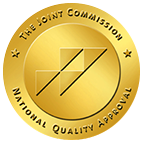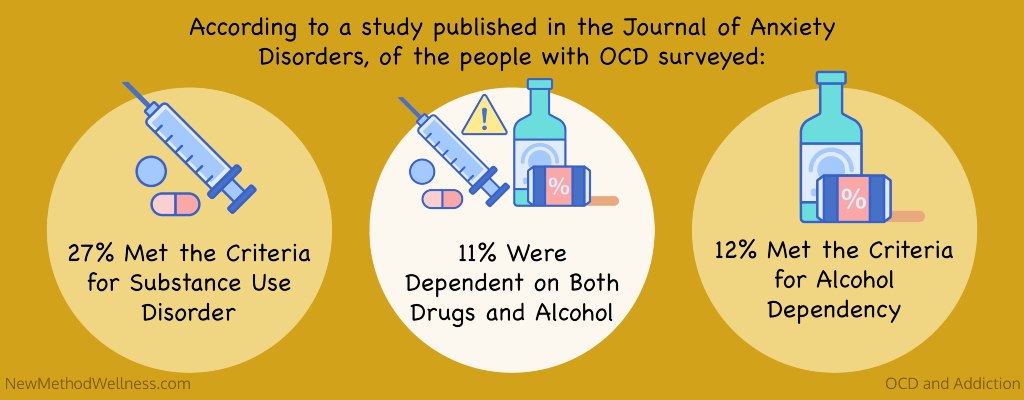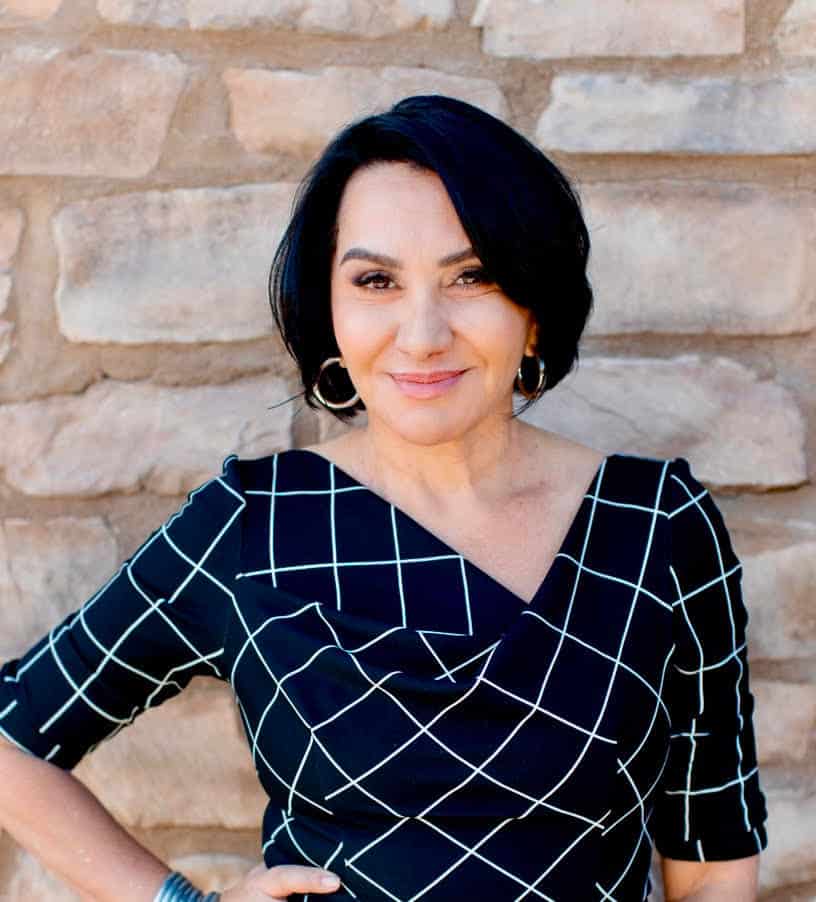
DUAL DIAGNOSIS: Addiction and OCD


Table of Contents
Addiction and Obsessive Compulsive Disorder
Did you know that around 20 million people in the American population suffer from a substance addiction?
Addiction is a serious condition that can cause severe health and mental travesties later in life. What’s even worse than dealing with an addiction, is doing so alongside having OCD.
In this article, we’ll highlight the connection between OCD and addiction, some common traits of each, and how to treat both at the same time. Read on to learn more.
What is OCD?
Obsessive-Compulsive Disorder (OCD) is a behavioral health disorder in which causes a person to be stuck in a consistent cycle of obsessions and compulsions. These obsessions (such as unanticipated thoughts, actions, or beliefs) can become so repetitive that a person with OCD can only find relief through compulsions.
However, these compulsions don’t fix these obsessive thoughts on the spot. Many times, these compulsions must get repeated over and over again just to get a slight relief from the anxiety caused by OCD.
Many people experience obsessive tendencies to some degree. Often, these tendencies stem from periods of high stress, anxiety, or during times of grievance. One of the most important distinguishing factors between this and OCD is that OCD severely hinders a person’s ability to live their life.
People who have OCD have to battle throughout their entire day with obsessive thoughts accompanied by compulsions. So their daily schedule can begin to revolve around their OCD.
What Are Obsessions?
Obsessions are recurring beliefs, images, thoughts, impulses, and fears that circulate throughout a person’s mind consistently. People with OCD are not in control of their obsessions which is why they are also called intrusive thoughts.
Intrusive thoughts can come at any time of the day. As their name suggests, these thoughts are not anticipated- and the person suffering from OCD does not want to have them. Intrusive thoughts cause high amounts of fear and anxiety for those with OCD.
Sometimes, intrusive thoughts are extremely confusing. They don’t make any sense at all, and your mind will cause you to believe things that aren’t true. However, they are different from hallucinations (both auditory and visual).
Listed below are some common obsessions:
- Fear of Contamination
- Fear of Harming Oneself or Others
- Unwanted Thoughts about Sexual Advances
- Overly-Superstitious
- Obsession with Everything Being Completely Perfect and in Order
- Fear of Losing Things
What Are Compulsions?
Compulsions are a bit easier to understand. Compulsions are repetitive behaviors, actions, or thoughts that people develop as a way to rid their minds of obsessions. While this might sound like a coping mechanism, compulsions are only temporary solutions.
To add to that, compulsions have the potential to trigger harsher obsessive thoughts. For someone obsessed with cleanliness, they might compulsively wash their hands five times after touching something. However, washing hands soon might not seem like enough, and their obsessions will have them believe that the soap itself is contaminated too.
Not all compulsive behaviors are compulsions though. Washing your hands twice after touching something dirty probably is not a compulsion. But, if the compulsion controls your everyday life, that’s when it gets worrisome.
Compulsions can look like this:
- Making the Bed Three Times Every Few Hours
- Checking on others to make sure you did not harm them
- Rereading material you understood
- Rearranging things in perfect symmetry
- Consistent body checks
- Excessive cleaning (of body parts or house)
The Difference Between OCD and Addiction
OCD might sound like it stems from addiction if either (or both) of the obsessions or compulsions have to do with alcohol or drug abuse. While this is the case in some situations, the two are very different.
First, we have to look at the difference between substance abuse and dependence.
Substance Dependence
Substance dependence is actually not a form of substance addiction, however, it is generally a direct precursor to addiction. Substance dependence is a physical symptom. It’s physical because the body starts to depend on the substance that is used repetitively.
Because of this dependence, your body might feel like it cannot function without the substance. This then leads to having an elevated tolerance to the substance and feeling severe withdrawal whenever abstaining from it.
Some symptoms of dependence include nausea, headaches, anxiety, shakes, chills, and stomach pain. To get diagnosed with substance dependence, your doctor or therapist will look for all of these symptoms. Additional symptoms they might look for are:
- Desire to quit, but the inability to do so
- Continual usage despite side effects caused by the dependence
- Trading social or work-related activities for more time spent using the substance
Despite being mostly physical, dependence is also mental in a few situations. You’ll know when dependence is mental when something triggers you into using the substance.
Please keep in mind that someone can be dependent on a substance and not get addicted to that substance. The two are commonly seen together, but this is a correlation situation and not a causation.
Substance Abuse
Substance abuse is slightly different than dependence but is still associated with addiction. Abuse generally occurs when someone goes out of their way to get ahold of substances that they are addicted to (such as drugs or alcohol). Whatever means they find necessary, might be legal or illegal.
Much like dependence, substance abuse hinders the person’s ability to function daily by consuming their thoughts. Intense cravings for the substance are felt on a consistent basis.
You might have noticed that abuse (and addiction in general) is much more psychological than dependence. During substance dependence, your body feels like it needs the substance to survive. You’ll feel plenty of negative withdrawal symptoms when you’re not on the substance.
With substance abuse, the negative effects usually take place in the brain and the mind. When someone begins abusing substances, the biochemical processes in the brain change. The brain learns to prioritize the substance in question over anything else.
More often than not, people who abuse substances act irrationally when not on them. Common behaviors include:
- Continuing use of the substance despite negative side effects
- Use of substances in dangerous situations such as operating machinery or driving
- Running into problems with the law because of the substance
Just like dependence does not equal abuse, abuse does not equal dependence. Learn more about the differences between alcohol dependence and alcohol abuse.
How Addiction Starts
Addiction doesn’t have to be substantially related. With that in mind, there are several types of addiction, including drugs, alcohol, sex, food, and internet addictions.
The severity of each type of addiction varies greatly and isn’t something that looks the same for each type. Whereas one person might have a severe addiction to a substance such as alcohol, you’d be surprised that someone has the same severe addiction to something like shopping.
Addiction is highly dependent on two factors. The first factor is the most variable of the two. Problems with substance addiction start with first trying the substance. A common misconception of drug and alcohol addiction is that people get addicted after trying a substance for the first time during a period of depression or anxiety. While this might be the case for some people, it’s not the most common.
Other causes of addiction include sex and the internet. People who are addicted to sex find themselves constantly watching pornography, excessively masturbating, and finding less and less pleasure for sexual activities (some of which might even be illegal). It’s hard to identify where this comes from, so we recommend speaking to a registered therapist to discuss any particular triggers.
The same goes for something such as internet addiction. People with internet addictions find it less and less pleasurable the more time they spend on the internet but have trouble letting it go.
The situation you were in during your first attempt at a substance or behavior heavily influences addiction. Parties are among the most common first attempt environments for drugs and alcohol. In fact, multiple studies show peer pressure has a huge effect on drug addicts.
For other addictive behaviors, certain childhood events could have jump-started the addiction. But one thing that’s in common between almost all addictions, is that they’re very commonly regarded as coping mechanisms. This is especially true for those suffering from OCD.
The Connection Between OCD and Addiction
In a study that sought to find the connection between OCD and drug addiction, results found that almost 30% of those suffering from OCD also tested positively for substance abuse. That’s double the number of Americans who have a substance addiction without any type of anxiety disorder.
The correlation between anxiety disorders such as OCD and addiction has been researched extensively throughout the years. Many research studies have concluded that there is often a direct link between anxiety orders like OCD and addictive behavior.
In addition, there are even more connections between those who have an anxiety disorder and addiction.
What’s even more interesting, is that some researchers believe that these anxiety disorders are actually the cause of addiction. There’s a huge indication of what was mentioned earlier: that people who suffer from OCD (and other anxiety) disorders use addictive behaviors as a coping mechanism.
Most of these coping mechanisms have some sort of anxiety-alleviating byproduct to them. For drugs and alcohol, many of these substances take the anxiety away, even if for a short amount of time. For those who have severe cases of OCD, short relief isn’t enough.
That’s when addiction happens.
For OCD specifically, turning to addictive substances or behaviors can be seen as compulsive behavior. When the anxiety from obsessions becomes uncontrollable, people look for relief. Obsessive thoughts can even form around substances or behaviors themselves.
This could look like someone obsessively thinking they are going to harm someone if they are not under the influence, so they repeatedly tell themselves that they need to drink or take a drug.
Social Isolation
It wouldn’t be right to talk about the effects of OCD and addiction without mentioning social isolation. Unfortunately, because of OCD’s nature, many people who suffer from it become isolated from the world around them.
This happens because it’s hard to make friends or stay in touch with family while living a life that is governed by the obsessive-compulsive cycle. Many times these cycles start at an early age. If left untreated, people who experience both social isolation and OCD will likely turn to addictive substances or behaviors later down in their life.
Co-occurring OCD is the term for people who have to deal with both OCD and addiction.
Treating Both OCD and Addiction
The best method for treating OCD and addiction is to tackle them at the same time. These two go hand in hand as they both involve coping mechanisms and anxiety, so one method that is used for OCD might be great for addiction as well.
One of the best therapy methods to use is cognitive-behavioral therapy (CBT). This therapy method involves searching for harmful thought and behavior patterns that a client holds and replacing them with healthy ones. It’s a common type of therapy found in talk therapy.
A qualified therapist can treat you for OCD and drug addiction, OCD and sex addiction, and other addictions that co-exist alongside your OCD.
We do need to mention one thing, and that’s treating addiction while on medication. OCD is an anxiety order that can get treated with medication. However, it is highly advised not to consume alcohol or other drugs while on these medications.
In the event that someone is both dealing with substance addiction and on OCD medication, detoxing might be necessary. Your psychiatrist might want to stop the medication until the substance abuse ends. Always speak with your health professionals before getting on medication.
Why We're One Best Dual Diagnosis Treatment Centers
OCD and Addiction aren’t something you or your loved one has to deal with alone. Both can get treated with great results by those who care.
At New Method Wellness, we welcome you or yours with open arms. Both of these cases can lead to serious conditions later down the line, and we don’t want to leave you that way. We offer plenty of services and therapy methods ranging from CBT, art therapy, and even holistic care.
New Method Wellness is a premier dual diagnosis addiction treatment center dually accredited by The Joint Commission. It has been singled out as one of the best drug and alcohol rehab centers in America, offering a unique 3:1 staff-to-client ratio that pairs every client with two therapists instead of one.
At New Method Wellness, we add another dimension to dual diagnosis treatment, and that is the integration of holistic therapy, such as massage/acupuncture therapy, equine therapy, and art therapy. As addiction therapists and substance abuse counselors work with clients to treat the substance use disorder and the co-occurring illness associated with it, holistic therapy adds meaning to life after treatment and sustains long-term recovery. Our 3:1 staff-to-client ratio ensures client success after treatment, as evidenced by our Extended Aftercare program.
For more information about New Method Wellness’s treatment programs, call (866) 951-1824
Related Topics
Clinically Reviewed By:
Deanna J. Crosby, M.A., LMFT, LAADC, Psy.D. (C)
Deanna Crosby is a Licensed Marriage and Family Therapist (LMFT) with over 20 years of experience working with clients in recovery. Her expertise has catapulted her into the spotlight. Featured on several episodes of the Dr. Phil Show as a behavioral health expert, DeAnna is a routine contributor for NBC News, The Huffington Post, Elle Magazine, MSN, Fox News, Yahoo, Glamour, Today, and several other prominent media outlets.
After receiving her bachelor’s degree from the University of California in Irvine, Crosby did postgraduate work at Centaur University where she graduated at the top of her class with a CAADAC certification in Centaur’s chemical dependency program. Following her time at Centaur, Crosby received her Master of Counseling Psychology degree from Pacifica Graduate Institute, where she also attained a Doctoral Degree in Depth Psychology.
TAKE THE FIRST STEP
From all of us at New Method Wellness co-occurring treatment center, we wish you peace and serenity in knowing that you or your loved one will get the necessary help.
ACCREDITED BY:



